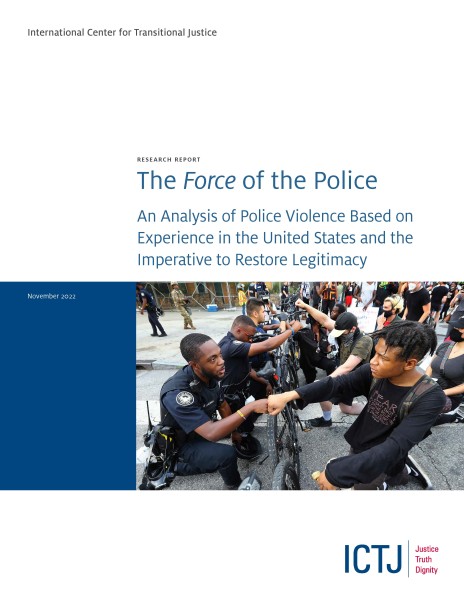We work side by side with victims to obtain acknowledgment and redress for massive human rights violations, hold those responsible to account, reform and build democratic institutions, and prevent the recurrence of violence or repression.
The Force of the Police: An Analysis of Police Violence Based on Experience in the United States and the Imperative to Restore Legitimacy
George Floyd’s death reignited existing anger over American society’s deep and festering racial wounds. His death triggered significant social uprisings that have challenged the methods of policing that have emerged over the course of several decades. With a growing awareness of police brutality triggered by demands of the Black Lives Matter movement, the time for an in-depth rethinking of the legitimacy of law enforcement bodies in the United States is ripe.

Egon Bittner, an early scholar of policing, noted that one of the peculiarities of the institution of the police is that it swings into action in response to “something that ought not to be happening and about which someone had better do something now.” The situations in which the police are called on to act are often emergencies, and it is at junctures such as these that, paradoxically, police officers sometimes take actions that ought not to happen.
This is precisely what occurred in Minneapolis, Minnesota on May 25, 2020, when George Floyd, a 46-year-old Black man, was stopped by the police and subsequently killed by an officer who knelt on his neck for over nine minutes, ignoring his frequent pleas for help. The words he spoke as he suffocated under the officer’s knee—"I can’t breathe”—became an instant rallying cry for the protest movement that started in Minneapolis and quickly reverberated throughout the United States and the world.
Floyd’s death reignited existing anger over American society’s deep and festering racial wounds. The litany of historical abuses in the United States is indeed long.
His death also triggered significant social uprisings that have challenged the methods of policing that have emerged over the course of several decades. These uprisings have attributed greater responsibility to the police than in the past, for their perpetuation of stereotypes and discrimination.
The time for an in-depth rethinking of the legitimacy of law enforcement bodies in the United States is ripe, and not only as a result of the new political approach ushered in by President Joe Biden and the greater awareness of police brutality triggered by demands of the Black Lives Matter movement.